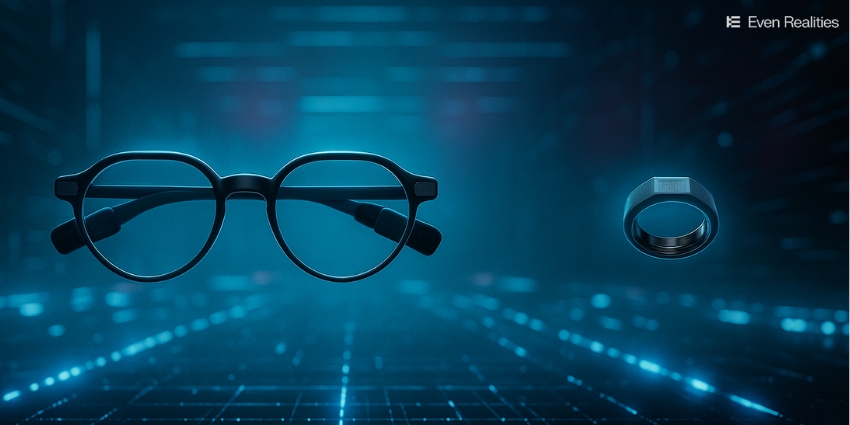This week, Meta revealed its Q3 performance during its quarter-public earnings call. During the session, the leading XR and social technologies firm highlighted general operational success, with Q3 total revenue reaching $40.6 billion, up roughly 19%.
Meta’s total expenses also increased by 14% to $23.2 billion, and the cost of revenue increased by 19% due to higher infrastructure costs. Meanwhile, Meta’s R&D focus increased by 21%, “mostly driven by higher headcount-related expenses and infrastructure costs,” explained Susan Li, Meta’s Chief Financial Officer. Meta’s increased headcount reached over 72,400 employees, up 9% year over year following a period of large-scale layoffs at the start of 2023.
The firm is experiencing growth, and lead officials were keen to highlight how Meta drove growth through “hiring in our priority areas of monetization, infrastructure, Reality Labs, generative AI, as well as regulation and compliance,” remarked Li.
Interestingly, despite being one of Meta’s core growth pillars, its Reality Labs division experienced a $4.4 billion operating loss, following a legacy of operating losses from previous quarters and years.
However, it should be noted that the Reality Labs firm historically operates at a loss due to Meta’s massive investments in XR technology, from headsets to smart glasses. For example, Reality Labs’ expenses reached a whopping $4.7 billion, up 19% year over year, driven by investments in higher headcounts and infrastructure costs.
Li noted that Reality Labs’ operating losses will “increase meaningfully year over year due to our ongoing product development efforts and investments to further scale our ecosystem.”
Li said:
We’re also assessing what the opportunities look like in some of the more medium- and long-term strategic areas of investment and that includes our efforts in gen AI and the infrastructure needed to support it. It includes our investments in Reality Labs.
Zuckberg’s Reflects on Smart Glasses Success
As Reality Labs operating on a loss is commonplace for Meta, CEO Mark Zuckerberg is most likely not phased by the result. In fact, Zuckerberg noted that in the quarter, “we also had several milestones around Reality Labs and the integration of AI in wearables.”
He explained:
Ray-Ban Meta glasses are the prime example here. They’re great-looking glasses that let you take photos and videos, listen to music, and take calls. But what makes them really special is the Meta AI integration. With our new updates, it will be able to not only answer your questions throughout the day, but also help you remember things, give you suggestions as you’re doing things using real-time multimodal AI, and even translate other languages right in your ear for you.
At Connect earlier this year, Meta revealed various updates to its Ray-Ban smart glasses device, which are experiencing increasing consumer interest. The firm even posied to secure a 5% stake in Ray-Ban parent firm EssilorLuxottica.
“Demand for the glasses continues to be very strong,” Zuckerberg said. According to the CEO, Meta’s most recent clear edition of the AR device, first unveiled at Connect 2024, “sold out almost immediately and has been trading online for over $1,000.”
Recently, the leading firm behind the Meta Ray-Ban partnership, EssilorLuxottica, also expressed keen interest in the success of the AR device. EssilorLuxottica is reporting strong demand for the Ray Ban Meta smart glasses; notably, in EU regions, the firm reported that 60% of EU Ray-Ban stores mark the smart glasses as best-sellers.
In the US, EssilorLuxottica CFO Stefano Grassi noted that AI integrations on smart glasses represent a “killer application” for users. “We can’t wait to see that application rolled out in Europe. I think it would be extremely beneficial to consumers,” Grassi remarked.
Zuckerberg also added:
We’ve deepened our partnership with EssilorLuxottica to build future generations of smart eyewear that deliver both cutting-edge technology and style.
Ray-Ban’s success is currently Meta and Reality Labs’ leading success story. Despite Reality Labs-based investments haemorrhaging money for Meta, the technology giant considers the investment worth it.
This investment will continue and only increase. Earlier this year at Connect, Meta also unveiled its Orion smart glasses, a prototype device that aims to showcase the future of AR wearables. This unveiling also highlights Meta’s long-term strategy with Reality Labs.
Zuckerberg said
At Connect, we also showed Orion, our first full holographic AR glasses. We’ve been working on this one for about a decade, and it gives you a sense of where this is all going. We’re not too far off from being able to deliver great-looking glasses to let you seamlessly blend the physical and digital worlds, so you can feel present with anyone no matter where they are. And we’re starting to see the next computing platform come together and it’s pretty exciting.
“I’d say Reality Labs is clearly one of our strategic long-term priorities, and we expect it will be an area of significant investment in — as we build out toward the very ambitious product road map that we have there,” Li noted.
Li explained that Reality Labs “is clearly one of our strategic long-term priorities” and an area of significant investment as the firm works toward a “very ambitious product road map.”
Looking Forward for Meta
Smart glasses are not the only area that Meta is focusing on. During the call, Zuckerberg also highlighted excitement regarding the recently released Meta Quest 3S, a lightweight MR headset. He stated, “reviews are great so far, and I’m looking forward to seeing how well it does this holiday season as more people get their hands on it.”
Despite a deep XR hardware portfolio, Meta appears to be focusing on the “earlier-than-expected success of smart glasses,” according to Li. The CFO states that in the future, Meta expects to significantly scale its infrastructure capacity; “while also prioritizing its fungibility will similarly position us well to respond to how the technology and market develop in the years ahead.”
Li explained:
As we think about the 2025 budgeting process for Reality Labs, we’re certainly thinking about where we want to make sure we’re putting our sort of focus and energy. We are very excited, again, about the progress that we’ve seen with our smart glasses as well as the sort of strong consumer interest in them.
In closing, Zuckerberg is unsurprisingly optimistic about the future of Meta and XR. This optimism is clearly driven by smart glasses, which appear to be taking the focus away from the MR headset and the seemingly forgotten [for now] metaverse.
“This may be the most dynamic moment that I’ve seen in our industry,” Zuckerberg stated. “I am focused on making sure that we build some awesome things and make the most of the opportunities ahead, and if we do this well, then the potential for Meta and everyone building with us will be massive.”







